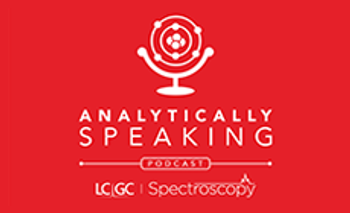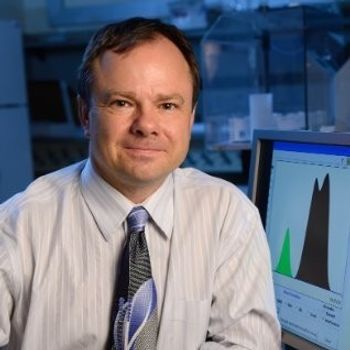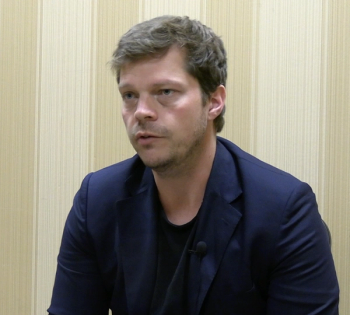
Department of Homeland Security Offers Programs for Individuals and Universities to Develop Expertise in Nuclear Forensics
In response to the growing concern in the United States over the threat of nuclear terrorism, the Domestic Nuclear Detection Office (DNDO) in the Department of Homeland Security (DHS) launched the National Nuclear Forensic Expertise Development Program (NNFEDP) in 2008. Led by DNDO in close collaboration with the Departments of Energy (DOE) and Defense, the NNFEDP is an interagency effort committed to developing and maintaining a robust academic and technical pipeline to strengthen the nuclear forensics workforce.
In response to the growing concern in the United States over the threat of nuclear terrorism, the Domestic Nuclear Detection Office (DNDO) in the Department of Homeland Security (DHS) launched the National Nuclear Forensic Expertise Development Program (NNFEDP) in 2008. Led by DNDO in close collaboration with the Departments of Energy (DOE) and Defense, the NNFEDP is an interagency effort committed to developing and maintaining a robust academic and technical pipeline to strengthen the nuclear forensics workforce. Since its inception, the NNFEDP has provided support to over 170 students and faculty, as well as five major universities. In fiscal year 2012, opportunities will be based upon the availability of funding.
Attribution Supports Deterrence
In the event of the interdiction of a nuclear device, the seizure of nuclear materials, or a nuclear detonation in the United States, there will be tremendous pressure to identify the source of the materials and weapons. Nuclear forensics involves the collection, analysis, and evaluation of radiological or nuclear materials, devices, and associated evidence, which together with law enforcement and intelligence information, helps to determine attribution. Nuclear forensics supports attribution efforts to disrupt illicit nuclear smuggling networks and bring perpetrators and their accomplices to justice. This capability contributes to deterring nations from providing nuclear weapons or materials to terrorists, and encourages nations to ensure the security of their radiological and nuclear materials or weapons.
The United States’ ability to conduct timely and credible nuclear forensics hinges upon the availability of highly trained scientists in nuclear and related fields. That is why the NNFEDP was developed — to sustain a vibrant academic pathway, from undergraduate to post-doctoral study, in nuclear, geochemical, and other disciplines directly relevant to nuclear forensics.
Initiatives in the nuclear forensics expertise program include a variety of scholarships, internships, fellowships, and mentoring awarded to individuals at the undergraduate, graduate, and post-doctorate levels, as well as awards to universities and junior faculty, including multiyear research and development (R&D) funding.
Undergraduate Initiatives
The NNFEDP undergraduate-level programs consist of scholarships and summer school. These programs aim to expose undergraduate students to the field of nuclear forensics as a viable career path; increase the number of qualified students pursuing graduate studies in technical fields related to nuclear forensics; develop enduring relationships between the students and the sponsoring DOE national laboratories; and foster collaborations between university partners in relevant disciplines and existing staff at the national laboratories working in nuclear forensics.
DNDO launched the Nuclear Forensics Undergraduate Scholarship Program in 2011. This program aims to introduce outstanding physics, chemistry, and nuclear engineering undergraduate students to nuclear forensics-related research, sponsored by the U.S. government, at national laboratories. Participants are awarded a monetary scholarship and given the opportunity to gain hands-on experience through a nine-to-12-week summer research practicum, under the guidance of a senior laboratory mentor and a university faculty advisor.
In combination with the scholarship program, DNDO launched the Nuclear Forensics Undergraduate Summer School in 2010. The summer school provides a comprehensive, experimental, practical training curriculum in topics essential to nuclear forensics. The summer school program recruits undergraduate students from chemistry, physics, geology, and materials science departments at research universities across the nation.
Graduate Initiatives
A critical element of the NNFEDP is the Nuclear Forensics Graduate Fellowship Program, a joint venture between DNDO and the Department of Defense’s Defense Threat Reduction Agency. The program aims to build a viable student career path in nuclear forensics as it develops the next generation of Ph.D. scientists. Much like the undergraduate initiatives, the graduate fellowship program works to establish lasting relationships between the students and their universities, and the collaborating DOE national laboratories.
The fellowship provides support to graduate students pursing doctoral degrees in nuclear, geochemical, and other disciplines directly related to nuclear forensics. Fellows gain unique, hands-on experience through laboratory practicums and close interaction with technical and policy experts throughout the nuclear forensics community. A fellowship appointment includes tuition along with a 12-month stipend at an approved university, renewable for up to 60 months.
DNDO also sponsors graduate and outstanding undergraduate students to intern at either Lawrence Livermore National Laboratory (Livermore, California), or Los Alamos National Laboratory (Los Alamos, New Mexico) through the Glenn T. Seaborg Institute, which has branches at both of these national laboratories. This specialized internship program seeks students from research universities across the nation to work in critical skills areas related to nuclear forensics. Students are given an opportunity to join scientists in independent research projects at a national laboratory, and are teamed with mentors who can help hone their skills and guide research projects for advanced degrees. The Seaborg Institute facilitates student research in a variety of areas; however, students funded by DNDO work on projects directly related to nuclear forensics.
In addition, DNDO supports post-doctoral research at the national laboratories through its Nuclear Forensics Post-Doctoral Fellowship Program. The goal is to provide a career track for scientists coming out of the graduate fellowship program and to encourage recent Ph.D. graduates with relevant technical expertise to enter the nuclear forensics workforce. DNDO actively helps guide the program through continuous input to the national laboratories on specific projects.
University and Faculty Awards
DNDO and DOE’s National Nuclear Security Administration jointly funded the Nuclear Forensics Education Award Program from 2008 to 2011, with DNDO continuing support in 2012 and beyond. This award program is designed to encourage universities to develop and maintain interdisciplinary programs, in partnership with national laboratories.
The objective of a second initiative, the Nuclear Forensics Junior Faculty Award Program, is to provide universities with an incentive to recruit, promote, and retain highly qualified personnel to teach in nuclear forensics-related degree programs, and contribute to associated R&D projects at universities. DNDO established this program in 2010 in response to the declining cadre of faculty trained in nuclear forensics-related disciplines at U.S. universities.
Finally, beginning in early 2007, DNDO’s Office of Transformational and Applied Research, along with the National Science Foundation, began to invest in a multi-year, leading-edge research initiative at academic institutions called the Academic Research Initiative. Through annual research solicitations, a potential $58 million, in grant opportunities over five years, has been made available to colleges and universities for research in the areas of radiological and nuclear detection and forensics.
The success of the NNFEDP is critical to ensuring the U.S. government can accomplish the nuclear forensics mission. The NNFEDP plans to introduce three to four new Ph.D. scientists into the nuclear forensics workforce annually. Increased attention and support from Congress, the administration, and the academic and scientific communities will enable DNDO to maintain and advance this effort.
Application Information
Application deadlines for 2012 begin as early as February 1.
For more information about applying, click here:
Newsletter
Get essential updates on the latest spectroscopy technologies, regulatory standards, and best practices—subscribe today to Spectroscopy.




